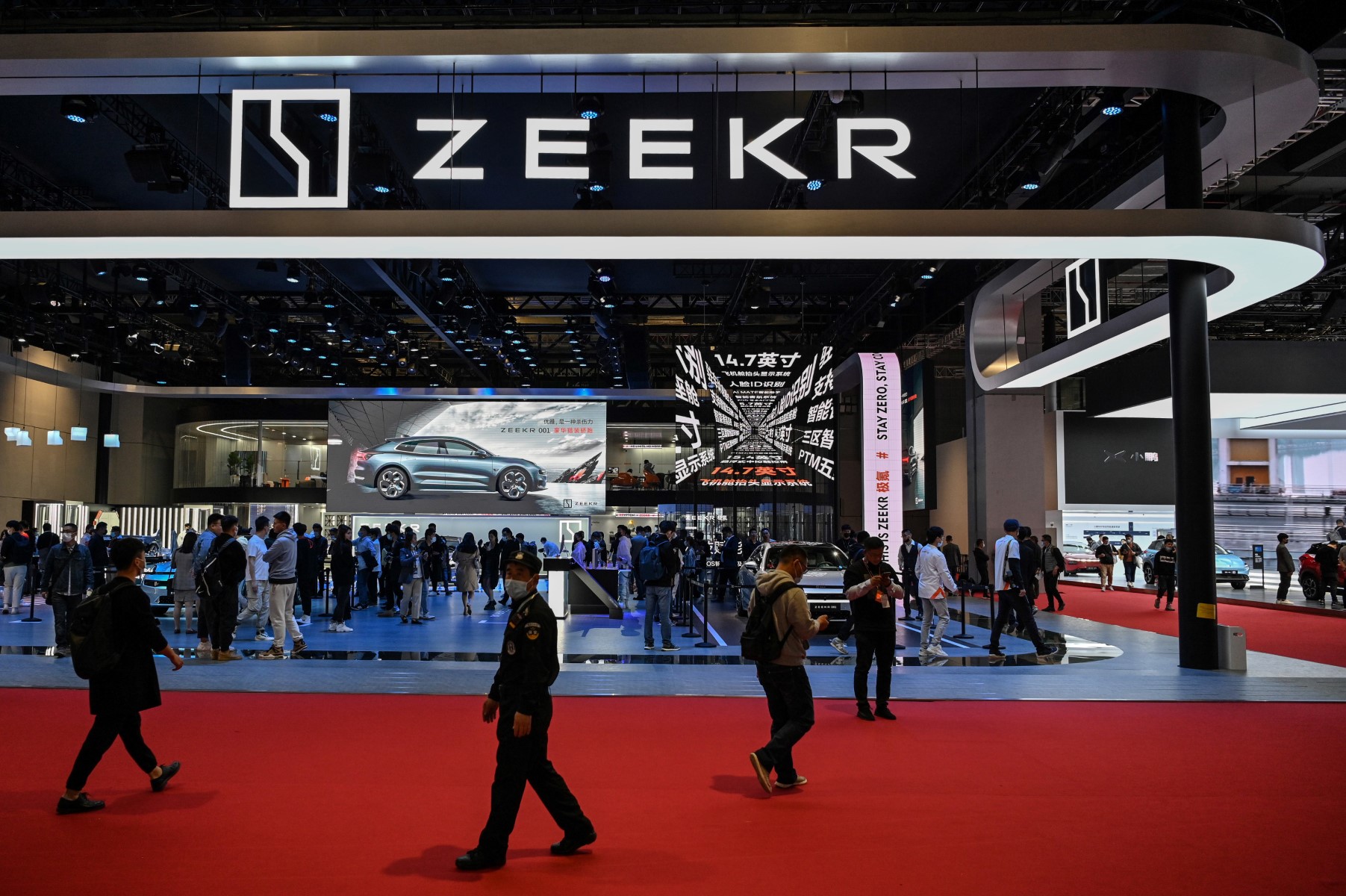Dubai, UAE – Chinese luxury electric vehicle manufacturer Zeekr, a subsidiary of Geely, is set to make its debut in the Middle East next year, as part of its global expansion efforts leading up to a planned initial public offering (IPO) in the United States, Financial Times reported on Friday.
The move follows a trend among Chinese EV makers seeking growth opportunities abroad due to slowing domestic sales and fierce competition in the Chinese market.
Zeekr’s anticipated $1 billion IPO would be the largest by a Chinese firm in the US since DiDi’s $4.4 billion raise in 2021, with geopolitical tensions and stricter cross-border listing regulations affecting Chinese listings.
Chen Yu, a Vice President at Zeekr, expressed the brand’s intention to adopt a competitive pricing strategy targeting traditional premium car brands like BMW and Audi. He noted that the Middle East, relatively new to the EV market, lacks a well-established offering of premium electric vehicles in most of its markets.
“The Middle East is a relatively new market for EVs, and there isn’t a matured brand offering of premium EVs in most of their markets,” he said.
Zeekr’s expansion will begin in four Middle Eastern countries: Saudi Arabia, the United Arab Emirates, Qatar, and Bahrain.
The move coincides with increasing collaboration between China and Gulf nations on various projects. Zeekr aims to deliver a total of 10,000 units in these markets by 2025 and is open to fundraising opportunities from Middle Eastern investors. Additionally, Zeekr plans to launch its cars in Israel by year-end, building on its success in delivering approximately 150,000 cars in China since 2021.
While Zeekr is expanding into Europe, it faces resistance from Brussels, which initiated an anti-subsidy investigation into the influx of Chinese electric vehicles in September.
The upcoming Zeekr IPO represents billionaire Li Shufu’s latest effort to extract value from his diverse business empire. Previously, Li Shufu floated Volvo Cars in 2021 and established the performance EV brand Polestar through a Special Purpose Acquisition Company (SPAC) deal in 2022. The Chinese arm of luxury sports car brand Lotus is also in the process of being listed through a SPAC deal.
To establish a sales network in the Middle East, Zeekr has signed agreements with four prominent car dealerships in the United Arab Emirates, Qatar, Bahrain, and Saudi Arabia. Zeekr’s entry into Middle Eastern markets aligns with the region’s affluent consumers who have the purchasing power for high-end electric vehicles.
“To set up a sales network, Zeekr signed agreements with four top car dealers in the United Arab Emirates, Qatar, Bahrain, and Saudi Arabia,” Chen said.
Other Chinese automakers are also strengthening their presence in the Middle East. NIO secured $738.5 million in new funding from an Abu Dhabi government-owned fund in June, while Saudi Arabia inked a $5.6 billion agreement with the Chinese parent company of the high-end EV brand Hiphi during the same month.
“A Middle East push is actually working for some of the high-end Chinese EV brands, as they would face fewer political headwinds than they would in the US or market,” Zhang said.








